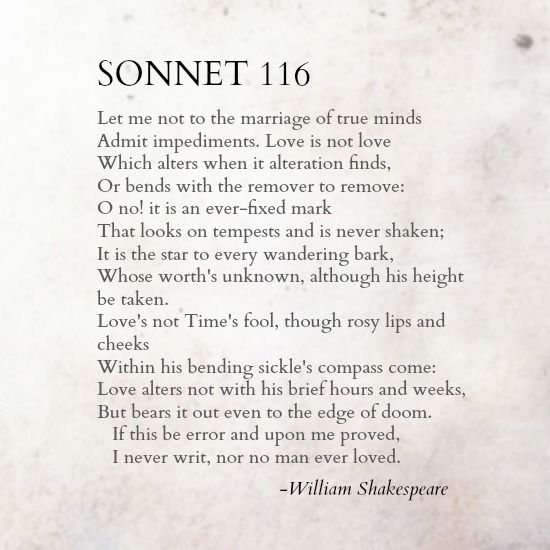Let me not to the marriage of true minds
Admit impediments. Love is not love
Which alters when it alteration finds,
Or bends with the remover to remove.
Sonnet 116 is a poem written by William Shakespeare and first published in a quarto (London, 1609) as a part of a 154-sonnet sequence. The poem is an expression of the poet’s idea of true love, which he describes as constant, unchanging, and eternal. He compares true love to a “star” that guides sailors through the storms of life, and says that even death cannot change or diminish it. The poem concludes with the famous line, “Love’s not Time’s fool, though rosy lips and cheeks / Within his bending sickle’s compass come.” This line means that true love is not affected by the passage of time or by physical beauty fading.
| Sonnet 116 | 1609 |
| William Shakespeare | England, London |

